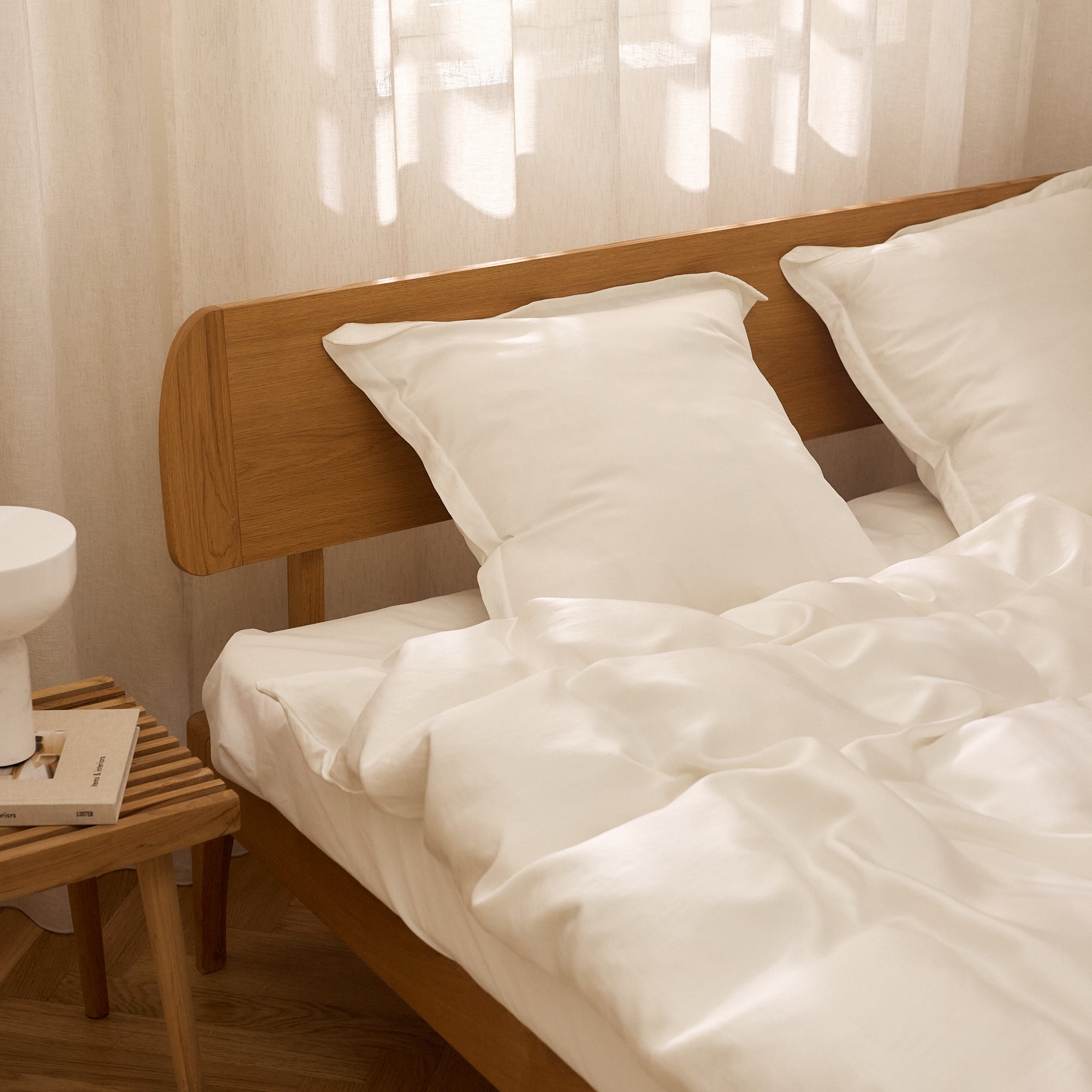Change your bed linen every 14 days or at least once a month if you want to maintain optimal hygiene in your bedroom. At least that's the starting point. However, how often you should change your bed linen depends on several factors, which you can learn more about here.
Your bed environment is less clean than you think
How often should you change your sheets? And what about the duvet and pillow covers? And when does the duvet itself actually start to need washing? A good and fixed routine for changing your bedding can save you a lot of speculation, and it's nice to know that the hygiene of your bed environment is completely under control, as long as you follow an optimal routine. But what actually determines how often you should change your bedding? For many of us, our bed environment is significantly less hygienic than we imagine, and the following three factors in particular are good to keep in mind:
How clean are you when you crawl into bed?
How long your bed linen lasts before it needs to be washed depends, of course, primarily on the hygiene of the person using the bed. In addition to the fact that most people sweat to some extent at night, many of us also drag dirt and bacteria into bed after a long day on the road. With an average of eight hours of sleep each night, this amounts to more than 50 hours of weekly contact between your bed linen and your dead skin cells, cream residue, dirty toes, sweat, and whatever else you bring to bed. An evening bath before bed can postpone changing your bed linen a little, but of course not forever. If you have been sick, you should change your bed linen as soon as you are well again.
Is your bed a haven for dust mites?
Dust mites thrive in a humid environment and feed on the dead skin cells, of which you lose an average of 1.5 grams every night. That may not sound like much, but it is actually enough to feed approximately 1 million of the tiny insects, which are not only an unhygienic companion in bed, but which many Danes are also allergic to. Dust mites die when washed at 60 degrees, but if you choose hypoallergenic bamboo bedding , you can wash at a maximum of 40 degrees, as bamboo is an antibacterial material where dust mites do not have favorable living conditions.
When was your duvet last washed?
It's not just bedding such as sheets, pillowcases and duvet covers that need to be washed frequently if you want to maintain a healthy environment in the bedroom. There's no point in having clean bedding if the duvet or pillow itself is full of uninvited guests in the form of various harmful bacteria. Therefore, wash both duvet and pillow at 60 degrees in the washing machine every quarter, and dry in the dryer. That way, you'll kill all living organisms.
Change bed linen every 14 days
As a rule of thumb, it is a good idea to change your bed linen every 2 weeks, regardless of whether your duvet/pillowcase is made of silk , bamboo or Egyptian cotton. However, the interval can be individual, and how often you should change your bed linen may depend, for example, on whether you have a physically demanding job outdoors and therefore sweat a lot and drag a lot of dirt home with you, whether you shower every day before bed, and whether you generally remember to wash both your bed linen and duvets and pillows at the right temperatures and at an appropriate interval. However, every 14 days is a really good starting point if you want to be sure that your bed is a clean and healthy place to go to sleep in the evening.
Read more about how to best wash your bedding and wash your duvet here .








































